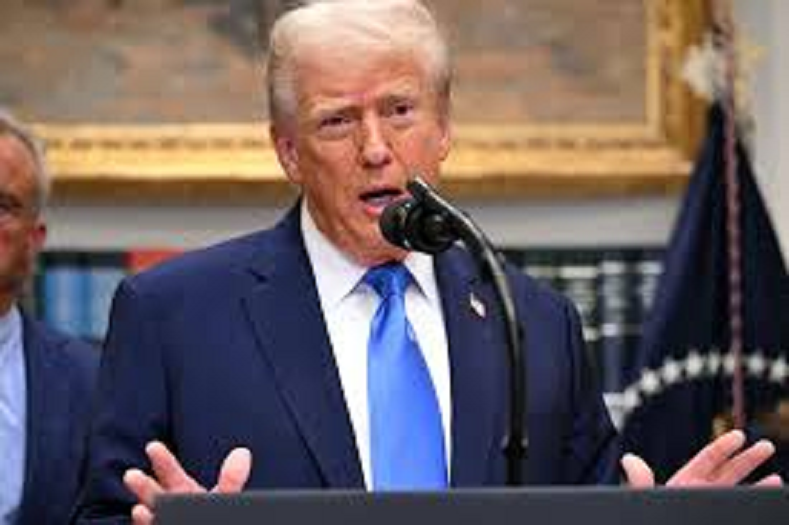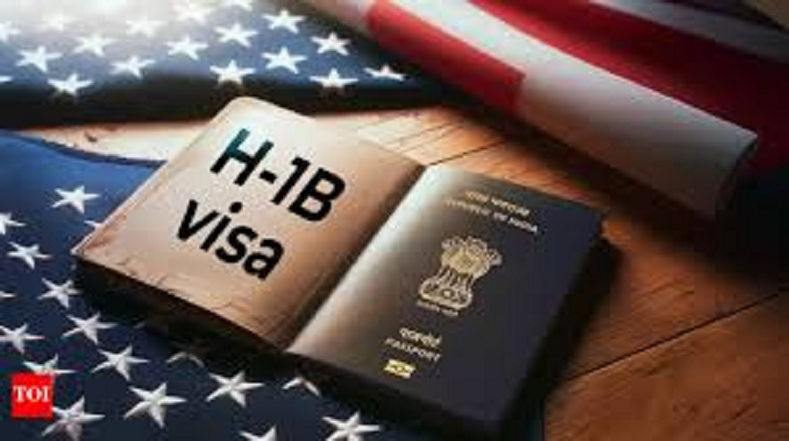We will lag behind China; Indians are needed for AI; Trump's H-1B visa policy is opposed in the US.
- bySherya
- 01 Nov, 2025

US lawmakers have urged President Trump to reconsider the new fees and restrictions imposed on H-1B visas, saying the decision could harm the partnership with India.

The H-1B visa has once again sparked a political debate in the United States. President Donald Trump's recent order imposes new restrictions on non-immigrant workers, particularly H-1B visa holders, and a fee of approximately $100,000 (approximately ₹8.3 million). Trump's move is stated to promote domestic employment. Furthermore, US lawmakers and industry experts believe this decision could be detrimental to both America's technological leadership and the US-India partnership.
Four prominent lawmakers from California and Texas—Jimmy Panetta, Ami Bera, Salud Carbajal, and Julie Johnson—have written a letter urging President Trump to reconsider this policy. They argue that the H-1B visa program is fundamental to the American economy and innovation. Limiting it would weaken America's competitiveness in areas like AI, cybersecurity, and scientific research. The lawmakers wrote that this move would be a major setback not only for talented foreign professionals but also for American startups and research institutions.
India will be directly affected.
These lawmakers specifically named India in their letter, stating that this policy could severely harm the India-US strategic partnership. They wrote, "High-skilled technical talent from India is an integral part of our innovation ecosystem. Limiting the H-1B visa program will not only stifle technological progress but also impact our relationship with our democratic ally, India." According to information, 71% of H-1B visas were issued to Indian citizens last year, making it clear that India is the largest beneficiary of this program.
When China is increasing investment, why should America step back?
The lawmakers said that when powers like China are investing billions of dollars in artificial intelligence and robotics, the US should focus on attracting talent, not restricting it. They warned that this policy, if implemented, would reduce America's innovation capacity and weaken its position in global competition.
The burden on small businesses will increase
The lawmakers also argued that such high fees would make it nearly impossible for small startups and research institutions to hire international talent. They argued that this policy would only favor large companies, while the true strength of American innovation lies in small businesses and emerging startups.
Potential impact on India-US relations
Diplomatic analysts say Trump's visa policy could impact the long-standing strategic partnership between the two countries. A significant number of Indian professionals in the US work in fields such as technology, engineering, medicine, and finance. Experts say that if the new tariffs and restrictions are implemented, it will not only reduce the flow of Indian talent but also limit educational and business cooperation between the two countries.




